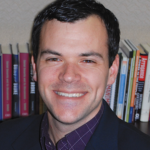Distinguished Members of the Committee:
Thank you for the honor of your attention. I am Michael Hamilton, a research fellow for health care policy at The Heartland Institute, managing editor of the print newspaper for lawmakers Health Care News, and coauthor of “The Case for Licensing Dental Therapists in North Dakota,” the 20-page Policy Brief in front of you, published on January 13.[i]
The Policy Brief and the one-page Policy Tips sheet accompanying it (“Licensing Dental Therapists in North Dakota”) make a straightforward argument for licensing dental therapists. First they describe North Dakota’s oral care shortage. Then they explain what dental therapy is and how it works, how dental therapy expands patient access in shortage areas, how dental therapy increases provider efficiency, and why continuing to blockade dental therapy would diminish provider liberty, patient access, and stewardship of North Dakota tax dollars.[ii]
Instead of merely regurgitating the bulletproof argument of these documents, I will use my few minutes to present crucial facts about dental therapy alongside objections to dental therapy these facts refute.
Objections to dental therapy range from the clumsy to the creative and are riddled with cavities.
Quality. Some opponents imagine licensing dental therapists would jeopardize quality of patient care. But as one Michigan lawmaker told The Heartland Institute in 2016, “I put the concern over quality right back in dentists’ laps.”[iii] He is right to do so. Dental therapists function exclusively under the supervision of licensed dentists. If therapists obtain licensure in North Dakota, dentists would remain responsible for the quality of treatment patients receive in their offices from any and all employees, whether dental hygienists, dental assistants, associate licensed dentists, or dental therapists. Therefore, to block dental therapy based on concern for quality of treatment is to doubt the quality, competence, and judgment of licensed dentists themselves. Lawmakers should resist fantasizing with opponents’ about the imaginary threat dental therapy poses to patients. Instead, this committee should consider in addition to being supervised by dentists, dental therapists exit their training programs with more experience than dentists have performing the services and procedures within therapists’ scope of practice. This is because therapists have narrower scopes of practice than dentists, whose programs require them to train more broadly.
Tiers. Rebuffing concerns about quality debunks another objection: Licensing dental therapists would create a two-tiered system of care, in which patients with private insurance or cash obtain care from dentists and Medicaid patients obtain care from dental therapists. The truth, however, is North Dakota already has a two-tiered system – a system of “haves” and “have nots.” North Dakota’s “have nots” can be found among the more than 66,000 people, almost 10 percent of the population, living in 35 federally designated dental health professional shortage areas. According to the state’s own Center for Rural Health at the University of North Dakota School of Medicine & Health Sciences, “have nots” also include approximately 37,000 children out of 51,000 children eligible for Medicaid (72 percent) who did not receive preventive dental care in 2015. An additional 65 percent of Medicaid children “went without any dental or oral health service” that year, according to the Center.[iv] Blocking dental therapy would preserve North Dakota’s two-tiered system.
Distribution. One opponent told The Heartland Institute dental therapists in Minnesota “are not going to remote rural areas.” A map provided by the University of Minnesota School of Dentistry in November 2016, however, shows 48 percent of employed therapists practice outside the greater metro area. This share exceeds the share of the population living in those non-metro regions, thus disproportionately benefiting residents in those regions. Moreover, North Dakota’s own Center for Rural Health has found the state’s oral care professional shortage can present in urban areas, such as among respondents to a survey of long-term care facilities. The survey found 41 percent of respondents were unable to offer residents a list of area providers, compared to just 20 percent of rural respondents.[v]
Hygienists. Multiple opponents of dental therapy told North Dakota lawmakers in September 2016 dentists who want to expand their practices may already do so by employing dental hygienists and assistants. This is hardly a reason to block dental therapy. The persisting shortage implies the benefits of expanding practices with only hygienists and assistants do not always outweigh dentists’ perceived costs of doing so. Licensing dental therapists would improve this calculus. Dental therapists and hygienists have separate scopes of practice. Unlike hygienists, therapists can perform certain extractions and fillings, two procedures especially influential to an individual’s overall health (not just oral health). Neither this committee nor dentists need choose between hygienists and therapists. Each kind of professional would typically work alongside each other as complementary members of a dental team. Licensing dental therapists would simply give dentists another option for building their dental dream teams.[vi]
Demand. A rising refrain among opponents is: “Dentists in North Dakota don’t want to hire dental therapists, so there is no point in licensing them.” On the contrary, if dentists won’t hire therapists, there is no point in blocking their licensure. That opponents finally acknowledge the vital role dentist choice would play in the spread of dental therapy in North Dakota comes as a welcome relief. By allowing dental therapists to obtain licensure, this body would expand the liberty of dentists to exercise their judgment as licensed dentists and owners of their practices. Dentists not enticed by the dental therapy model would remain free not to hire therapists. Entrepreneurial dentists would gain the option. Liberty is not the villain opponents pretend it is.
Socialism. Some object dental therapy is a mark of socialism, because some of the more than 50 countries in which dental therapists are practicing have socialist economies. This is like saying the presence of tequila in Bismarck makes Bismarck the capital of Mexico. We must distinguish the inherently socialistic from the fruits of society that socialists have hijacked—fruits that will blossom more fully in a free market. Depriving dentists of the right to choose their employees, and robbing patients of the ability to choose which providers offer the best value for their time and money, is central planning of the rankest kind. Lawmakers should end this practice by allowing dental therapists to start practicing under the supervision of dentists who freely choose to employ them.
Contrary to the many red herrings fished out by opponents of dental therapy, the question facing North Dakota lawmakers is not whether dental therapists give high-quality care (although they do), whether dental therapists would increase Medicaid patient access (although they would), whether rural or urban patients would benefit (although both would), or whether hygienists would remain employable by dentists (although they would).
The question really facing North Dakota lawmakers is simple: “Does licensing dental therapists in North Dakota pose a risk to public health great enough to justify depriving (1) dentists of their right to employ and supervise dental therapists if they choose and (2) patients of their right to access providers of their choice?” The answer is clearly “No.” Licensing dental therapists would only help.
Thank you for your consideration.
[i] Michael T. Hamilton, Bette Grande, and John Davidson, “The Case for Licensing Dental Therapists in North Dakota,” Policy Brief, The Heartland Institute and Texas Public Policy Foundation, January 13, 2017.
[ii] Matthew Glans, “Licensing Dental Therapists in North Dakota,” Policy Tips, The Heartland Institute, January 13, 2017.
[iii] Mary Tillotson, “States Consider Authorizing Dental Therapy to Expand Access,” Health Care News, The Heartland Institute, November 2016. See also Hamilton, Grande, and Davidson, supra note 1, p. 18.
[iv] Center for Rural Health, “Oral Health among North Dakota Medicaid Recipients,” Fact Sheet 8, School of Medicine & Health Sciences, University of North Dakota, December 2016, https://ruralhealth.und.edu/pdf/oral-health-nd-medicaid-recipients.pdf. Accessed December 30, 2016. See also Hamilton, Grande, and Davidson, supra note 1, pp. 3–4.
[v] Shawnda Schroeder, “Oral Health Care in North Dakota Long Term Care Facilities, Fact Sheet 2, Center for Rural Health, School of Medicine & Health Sciences, University of North Dakota, June 2016. https://ruralhealth.und.edu/pdf/north-dakota-oral-health-long-term-care.pdf. Accessed December 30, 2016. See also Hamilton, Grande, and Davidson, supra note 1, p. 6.
[vi] North Dakota Legislative Assembly, Health Services Committee, Minutes of the Health Services Committee, 64th Assembly, Interim Session, September 21, 2016, pp. 2–6. See also Hamilton, Grande, and Davidson, supra note 1, pp. 13–14.



